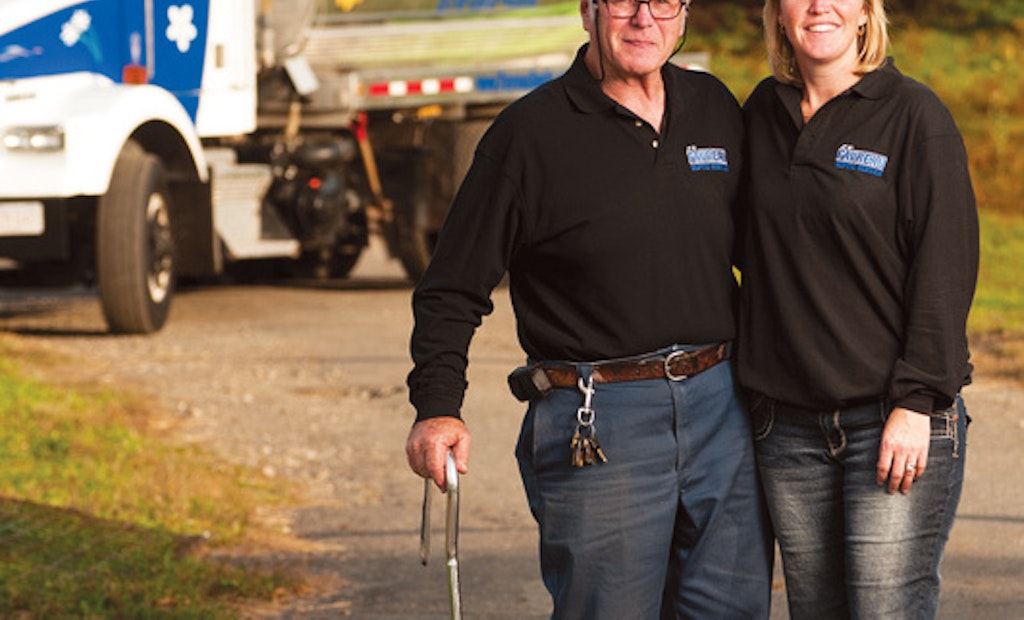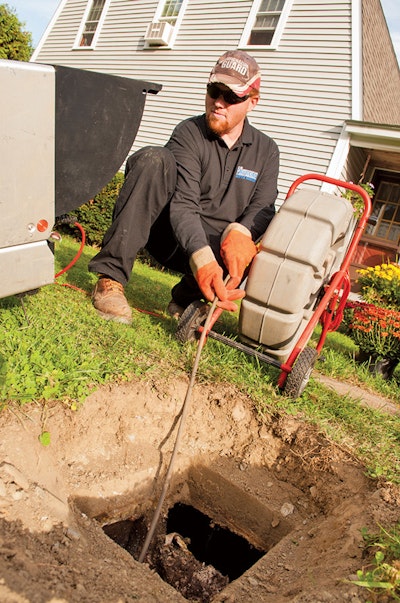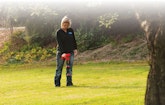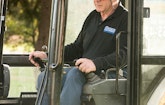
Interested in Onsite Systems?
Get Onsite Systems articles, news and videos right in your inbox! Sign up now.
Onsite Systems + Get AlertsAs one might expect from a guy who runs a cattle operation and a septic pumping business side by side, Larry Favreau’s work ethic is as solid as the boulders that dot his pride and joy, the aptly named Rocky Acres Farm LLC in Sterling, Mass.
But when the owner of L.R. Favreau Septic Service LLC fell and broke his neck one evening in May 2013, the incident revealed two truths: even proud, tough farmer/pumpers are vulnerable to accidents, and his family always has his back.
The latter wasn’t surprising to Larry, 68, a Vietnam War veteran who established the pumping business in 1992 and has long depended on his son, Brian; daughter, Holly Favreau-Shaw; and wife, Teresa, to keep the family enterprises running strong. “It was wonderful the way they pulled together,” Larry says of his children. “It makes you feel like you did something right while raising kids for all those years.”
But realizing the former was as unexpected as the accident that sidelined him for three months. “I slipped while getting back on my skid-steer after feeding the cattle,” he recalls. “I fell on my head and broke my neck … I was laying on my back and couldn’t move anything. A kid who rents a room from us on the farm finally heard me calling for help and ran to get my wife.”
PULLING TOGETHER
During the ensuing surgery, doctors fused several vertebrae and inserted two titanium rods to stabilize Larry’s spine. It was a daunting procedure, both physically and emotionally, especially for an energetic man used to being constantly on the go from dawn until night.
“My father was in the hospital and in rehab for three months,” says Holly. “I’m a nurse and so is my mother and sister, so we all took shifts so someone was with him 24/7. It was challenging to keep the company running, even with Brian coming in to help us out. It helped that I have an iPad, so I could type up septic system inspection reports and do job estimates while watching my father.
“Looking back, I wonder how we did it,” she adds. “I have two kids and my sister has five. But in that kind of situation, you just do it. You just figure it out.”
“My initial reaction was disbelief when my mom called and told me about the accident,” says Brian, who runs a third family business, Favreau Forestry LLC, a residential and commercial tree-care firm that uses the farm as an operating base. “I thought she was kidding … you always think your father is bulletproof.
“But then we all went into soldier mode,” he continues. “Holly handled all the office work and I handled all the field work. Superman didn’t fly in with his cape on. You just man up and get it done – lots of 16- and 18-hour days. You just do it.”
LEGACY OF LABOR
Larry’s first exposure to the world of liquid-waste removal and transportation came when he helped his Canadian-born grandfather clean outhouse pits as a youngster, carrying pails of waste to a truck for transport back to the family farm. After graduating from high school and serving in the military, including a stint in Vietnam, he returned home to work on the farm (an 80-acre spread with more than 70 head of cattle).
In 1992, prompted by a local pumper’s inability to clean the farm’s septic tanks in timely fashion and looking for additional income, Larry – who by then owned the family farm – decided to enter the septic-pumping field himself. So he bought a used truck for $13,000.
“At that point, the farm was too big for a hobby farm and too small to make a living off it,” he adds. “So with six kids, I had to find another income source. As a farmer, I’ve always had a second or third job.”
Through word-of-mouth referrals, phone book advertising and even a short television commercial, the business quickly gained traction. “It pretty much took off from there … and the phone keeps on ringing,” he says. “I figure I must be doing something right. Either that, or people just like to keep me busy.”
Today, Favreau Septic has several thousand accounts, mostly residential. It receives about 75 percent of its revenue from pumping septic tanks; system inspections contribute another 20 percent and repairs and installations account for the balance, Holly says.
The company’s equipment includes a 1996 Kenworth truck equipped with a 4,500-gallon aluminum tank built by Progress Vac Truck and a Challenger pump made by National Vacuum Equipment Inc.; two Caterpillar skid-steers; a Caterpillar 301 mini-excavator; a Caterpillar 420 backhoe; a GMC Topkick dump truck with a dump body from Galion-Godwin Truck Body Co.; a 2005 Ford 250 cargo van; a SeeSnake pipeline inspection camera and locator from RIDGID; a toolbox water jetter made by O’Brien (a Hi-Vac Corp. brand); a Spartan 727 portable mini-jetter and Spartan 300 cable drain cleaning machine, both manufactured by Spartan Tool; and a Crust Buster agitator from Schmitz Bros.
DO UNTO OTHERS
Larry credits his success to a very simple business philosophy: Do what you say you’re going to do, and do it when you said you’re going to do it. In other words, show up for jobs on time. After the work is complete, leave customers’ yards cleaner than you found them.
“That’s how we’ve built our business – taking pride in our name and reputation,” says Brian. “You need to do for every customer what you would want if you were paying for the same service. Now, I know everyone says that. But that’s truly the way it is with our company.”
The little things count at Favreau Septic. Customers don’t have to worry about a junky old truck rolling into their driveway and leaking oil. And it’s guaranteed that if a job requires any excavation, workers will carefully place sod and dirt on a tarp – no mess or lawn damage allowed. With several competitors in the area, there’s no margin for leaving customers dissatisfied, Larry notes.
The family’s trio of businesses work well together. If there’s an overload of chores on the farm, for instance, Brian and his five employees can help out. If the septic business is short-handed on labor for an unusually large job, Brian – who helped his father pump tanks for years – can help there, too, and vice-versa. Like the labor, equipment is freely shared between the businesses. And sometimes work from one company generates additional work for the other, like when a septic system installation requires tree removal or other tree-related services. “I’d say that happens about 10 percent of the time,” Larry says.
ENHANCED PRODUCTIVITY
The company also improves productivity by investing in affordable new technology as it comes along – such as the Crust Buster and the RIDGID pipeline camera. Before Favreau Septic owned the SeeSnake camera, tasks such as locating a D-box could be a frustrating and time-consuming, notes Holly, who gradually weaned herself off a full-time nursing job before starting to work for her father full-time about 10 years ago.
“Sometimes we’d look for hours,” she says. “Now it takes me all of five minutes when we use the camera in conjunction with a sonde locator. It even tells us how deep the box is buried. We’ve easily gained several hours of productivity a week, which adds up to a lot of hours over the course of a year.”
One of the biggest challenges Favreau Septic faces is a patchwork quilt of licenses required for both pumping septage and repairing septic systems. There’s no such thing as a statewide license for those two services; instead, operators must obtain one license for pumping and another for installing systems in not only every municipality in which they actually do the work, but also any that they drive through to do work. The licenses range from $35 to $250 each, and Favreau estimates he renews close to two-dozen every year.
“I bet you that come December, I’m probably dropping $2,000 or more for licenses,” he says.
LOOKING AHEAD
Slowly but surely, Favreau is recovering from his accident, though he admits he’s still limited physically. He’s working in a limited capacity and walks with a cane that he hopes to be less dependent on as time passes. The only equipment he operates is a mini-excavator. “The trucks are too high for me to get into,” he explains.
The accident will likely speed up the family’s long-term plan to have Holly assume ownership of Favreau Septic. “It may be a good time for me to step back a little earlier than we expected,” Larry concedes. “It’s hard to think about that … I’ve always been a dirt man … enjoyed playing in the dirt. But I remember telling my father the same thing at one point … that he had to slow down. So maybe it’s time for me to take my own advice.”
“It’s a little scary, to tell the truth,” Holly says. “But it’s an adventure I’m willing to take. If nothing else, I will still have Dad to fall back on and ask questions.”








